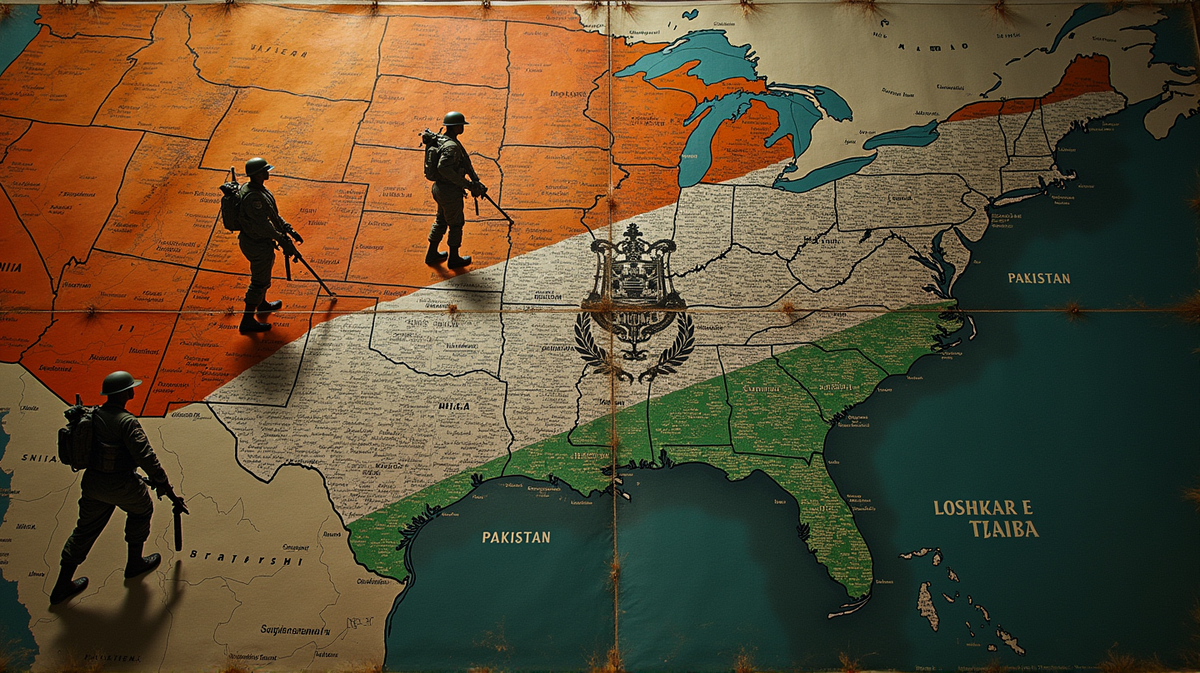U.S. Targets Terrorist Offshoot Over Deadly Kashmir Attack
The U.S. intensifies its counter-terrorism cooperation with India by designating the TRF, escalating tensions in the India-Pakistan conflict.

The Aftermath of the Kashmir Assault
In a decisive move that could reshape South Asian geopolitics, the United States has formally designated the Resistance Front (TRF), an offshoot of the notorious Pakistani group Lashkar-e-Taiba, as a “foreign terrorist organization.” This decision stems from the group’s alleged involvement in the April attack on the serene landscape of Pahalgam, Kashmir—a tragic event that claimed 26 lives and lit the fuse of conflict between India and Pakistan.
Unraveling TRF’s Complex Web
Initially brazen in its claim of responsibility for the heinous attack, TRF later retracted, fueling speculations and suspicions. Founded in 2019, this strategic proxy for Lashkar-e-Taiba has been viewed by analysts, including the South Asia Terrorism Portal, as a pivotal player in the escalating tensions within the region.
The U.S. Stance: Aligning with India
Secretary of State Marco Rubio’s announcement underscores a renewed commitment to combating terrorism alongside India. “This designation is a strong affirmation of India-U.S. counter-terrorism cooperation,” lauded India’s Foreign Minister, Subrahmanyam Jaishankar, in a poignant message acknowledging the global alliance against terror. According to Reuters, this step by Washington could potentially bolster the fragile U.S.-India relationship.
Echoes in South Asian Diplomacy
Michael Kugelman of Foreign Policy magazine interprets Washington’s designation as a strategic alignment with New Delhi’s perspective, indicating broader implications for U.S. alliances in the region. “This can be a shot in the arm for a U.S.-India relationship looking to rebound,” he observes.
Conflict and Diplomacy: A Fragile Dance
April’s attack cascaded into military confrontations, as Indian jets crossed borders in retaliatory strikes, targeting alleged “terrorist infrastructures” in Pakistan. This burst of hostility subsided following international interventions, leading to a ceasefire announced on social media by then-President Trump. However, subtle undercurrents of mistrust persisted between India and Islamabad, with divergent narratives on diplomatic engagements.
Navigating a Complex Geopolitical Terrain
Both India and Pakistan lurch through a delicate balancing act, with Kashmir’s breathtaking beauty tinted by historical conflicts. As regional peace hangs by a thread, the new U.S. designation against TRF encapsulates the somber reality of political maneuvering in the shadows of such timeless animosities.
This strategic declaration not only aims to undermine terrorist networks but also represents a broader effort in reshaping geopolitical alliances across Asia. The future remains uncertain, drenched in the cautious optimism of diplomatic breakthroughs and the somber clouds of an unyielding rivalry.





